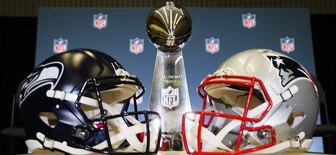On Monday, Buffalo Bills safety Damar Hamlin collapsed and went into cardiac arrest on the field during an NFL game between the Bills and the Cincinnati Bengals. Hamlin was given CPR on the field and then taken to the hospital. The Bills-Bengals game was suspended that night and fully canceled a few days later.
A YouGov poll conducted from January 3 - 5 (between the game's suspension and its cancellation) found that most Americans (54%) strongly support the NFL suspending the game. There are higher levels of support from people who heard a lot about the game (75%) and from people who are very interested in the NFL (67%).
Just 13% of Americans and 12% of people who are very interested in the NFL oppose the decision.
The incident comes at a time when 36% of Americans say that the NFL is not doing enough to address problems of contact injuries for active NFL players. An even greater share of Americans (44%) believe the league is not doing enough for retired players who suffer from contact injuries they got during their NFL playing days; 19% say the NFL is doing about the right amount and 5% say it is doing too much.
An earlier YouGov poll — conducted in October 2022, after Miami Dolphins quarterback Tua Tagovailoa was cleared to return to action after a possible head injury — found that 43% of Americans said the NFL is not doing enough to address problems of head injuries and concussions for active NFL players. A similar share of Americans (45%) said at the time that the NFL was not doing enough for retired players who suffer from brain injuries after sustaining concussions during their NFL playing days.
— Carl Bialik contributed to this article
See the results for these YouGov polls on the NFL, conducted January 3 - 5, 2023 and October 20 - 24, 2022
Methodology: These polls were conducted on January 3 - 5, 2023, and October 20 - 24, 2022 — each among 1,000 U.S. adult citizens. Respondents were selected from YouGov’s opt-in panel using sample matching. A random sample (stratified by gender, age, race, education, geographic region, and voter registration) was selected from the 2019 American Community Survey. The sample was weighted according to gender, age, race, education, 2020 election turnout and presidential vote, baseline party identification, and current voter registration status. Demographic weighting targets come from the 2019 American Community Survey. Baseline party identification is the respondent’s most recent answer given prior to March 15, 2022, and is weighted to the estimated distribution at that time (33% Democratic, 28% Republican). The margin of error for the overall sample for each poll is approximately 3%.
Image: Getty Images (Dylan Buell)











